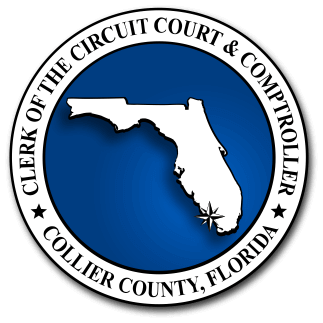|
Collier County Clerk of the Circuit Court
|
AdoptionWhat Is Adoption?Adoption is the legal procedure by which a child becomes, through court action, part of a family other than that of the child’s birth parents. An adult also may be adopted, the procedure is similar but considerably simpler. Florida law authorizes adoptions for all people, minors and adults. Adoption of a child permanently severs ties with birth parents and relatives and transfers the child into a new family where the child will remain permanently. To the birth parents, adoption usually means relinquishing the child forever without the privilege of seeing the child or being otherwise involved in the child’s life. However, in some types of adoptions, called open adoption, birth parents retain the right to communicate or visit the child. The Clerk of Circuit Court reports adoptions to the Department of Health/Vital Statistics within 30 days of the adoption order. Based on the order, a new birth record will be filed for the child by Vital Statistics. Types Of AdoptionsFour types of adoptions exist in Florida: The entity adoption (an agency or intermediary-facilitated adoption), the stepparent adoption, the close relative adoption and the adult adoption. Who Can Adopt A Child?Adults who live and work in the state, are of good character and have the ability to nurture and provide for a child may adopt. Single adults, as well as married couples, may adopt. A stepparent may adopt a spouse’s children. A person may not be prohibited from adopting solely because of a physical disability unless it is determined that the disability renders the person incapable of being an effective parent. Consent For AdoptionA court presiding over any Florida adoption must receive proof that facts exist to terminate the biological relationship forever. A biological parent may properly execute a consent for adoption and surrender rights to the child. Alternatively, a court must hear proof that the parent has abused, abandoned or neglected the child or failed to protect under Florida law. Adult adoptions do not require consent of the biological and legal parents; however, the petitioner must provide notice to the biological or legal parents. Unless the consent is excused by the court, written consent must be received from:
After Parental Rights Are TerminatedAfter a court issues a judgment terminating the biological parent-child relationship, the time frame for completing theadoption differs. In the case of an entity adoption, the adoptive parents are not eligible to finalize their adoption until 30 days after the judgment terminating parental rights or 90 days after placement of the child in their home, whichever event occurs later. In the stepparent, close relative and adult adoption, the adoptive parents are eligible to immediately finalize their adoption. Additionally, in stepparent and close relative adoptions, the adopting parent(s) have the option of proceeding in a unified legal process in which the order finalizing the adoption also simultaneously terminates parental rights. Stepparent adoptions are common when one biological parent is willing to give up parental rights to the stepparent. After adoption, the stepparent has all rights and responsibilities of the biological parent. In stepparent adoptions, as with all other adoptions, if the child is 12 years of age or older, the child must consent to the adoption and must be interviewed before signing the consent. The court may dispense with the minor’s consent to the adoption upon a finding it is in the best interest of the minor. Adoption Procedure After PlacementAfter a child is placed for adoption with an adoptive family, the adoptive family will desire to have the adoption finalized. To do this, the adoptive family must file a petition for adoption with the clerk of court. This is generally filed in the county in which the termination of parental rights took place. The petition must be filed within 60 days of the termination of parental rights judgment. The petition for adoption is generally prepared and filed through an attorney. If the child was placed through an attorney/intermediary, generally that same attorney handles the preparation and filing of the necessary legal papers for the finalization of the adoption. Finalizing The AdoptionThe adoption is “finalized” at a final hearing. The adoptive parent(s) are required to attend the hearing. A favorable final report of the agency or social worker must be filed with the court. The attorney handling the adoption will prepare the necessary papers for the court’s consideration and present the necessary testimony and evidence to the court. Assuming that all requirements of the statutes and court have been met, the judge will sign a final judgment of adoption. The final judgment of adoption awards the adoptive family parental rights of the child. Adoption RecordsAll records of adoption are confidential, and a court order is required to allow access to a court file. The Department of Children and Families maintains an Adoption Reunion Registry for the benefit of adopted children. At or about the time that the birth parents sign the consent for adoption, the initial election whether to be on the registry is also generally made by a signed statement. If the birth parent elects to be listed on the registry, then that parent’s identity may be released to the child after the child attains the age of 18 years. The birth parent who elects to be on the registry should keep the registry advised of name and address changes, so current information can be supplied to the child. On the other hand, if the birth parent elects not to be on the registry, no information will be given to the child by the Department of Children and Families after the child attains age 18. |
